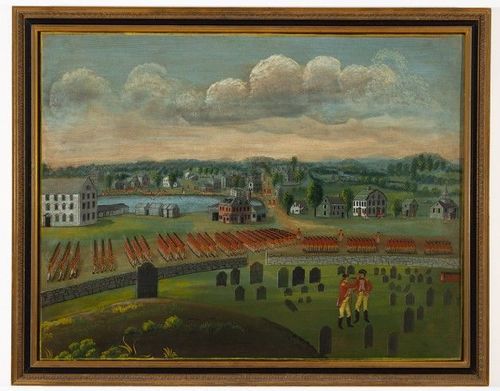1775: A Society on the Brink of War and Revolution - Day 1

MHS Event
The Concord Museum, the David Center for the American Revolution at the American Philosophical Society, and the Massachusetts Historical Society will hold a conference on 10-11 April 2025 on the theme “1775”. The conference will be convened at the Concord Museum and marks the 250th anniversary of the battles of Lexington and Concord. There will be opportunities for attendees to visit historic sites and view objects and collections significant to the Revolution.
The conference and workshop will take place at the Concord Museum in Concord, MA on 10-11 April 2025. Learn more about the conference here.
All attendees must register to attend the conference in advance. Note that conference presenters and commenters do NOT need to register.
Register to attend here.
Conference registration is $20 and includes the Thursday evening reception and a boxed lunch on Friday. The registration fee is waved for graduate students and adjunct faculty.
Questions about registration? Email Allison Shilling, Deputy Director & Director of Engagement at the Concord Museum (ashilling@concordmuseum.org).
Header Image: A View from the Town of Concord, by Timothy Martin Minot. Massachusetts, about 1825. Concord Museum Collection, Bequest of Mrs. Stedman Buttrick, Sr.; Pl414.
Day 1 of the conference will take place at the Concord Museum in Concord, MA. The keynote address will be held in a hybrid format, with in-person and virtual attendance options.
By registering you are agreeing to abide by the MHS Visitor Code of Conduct.
